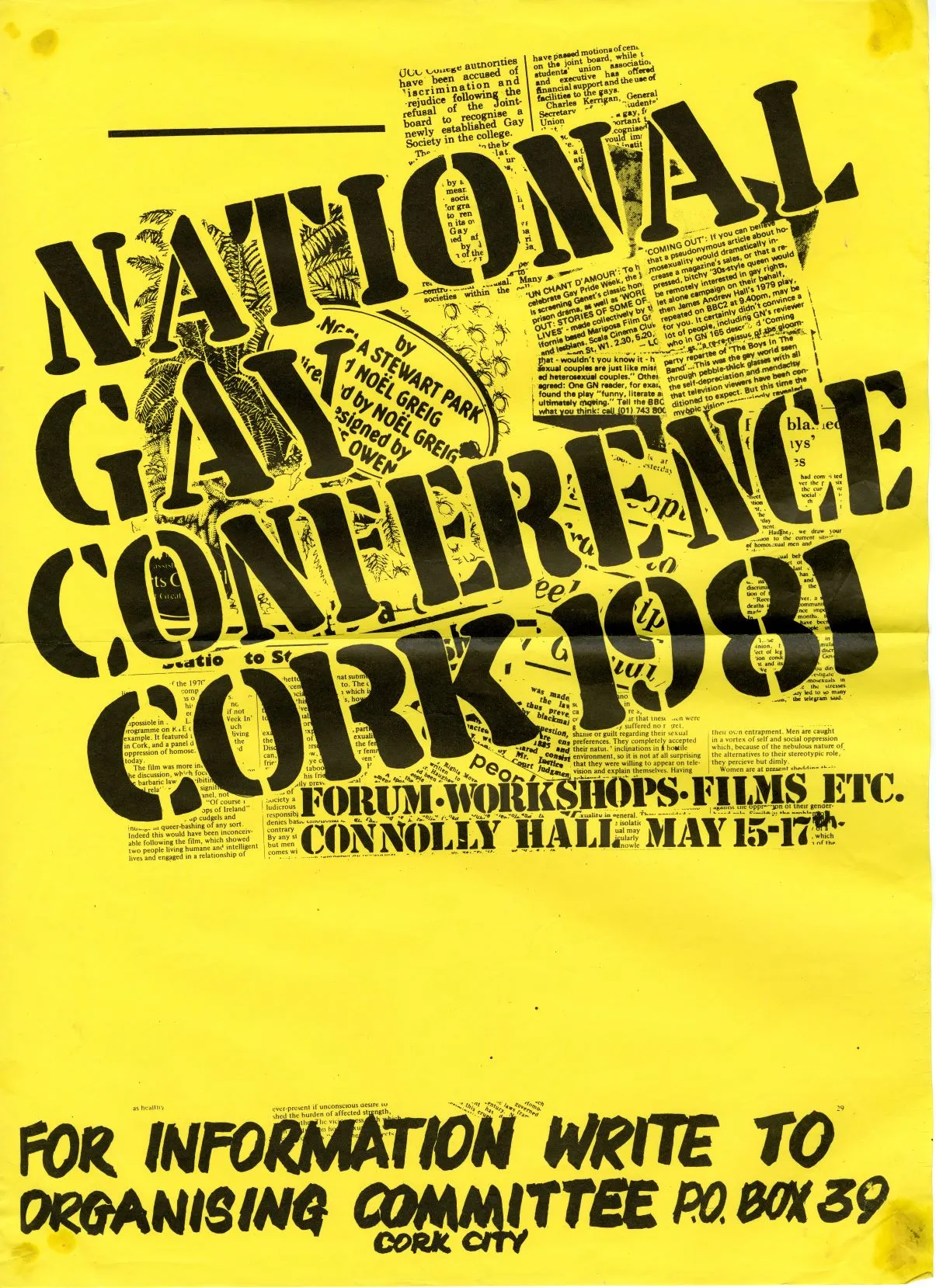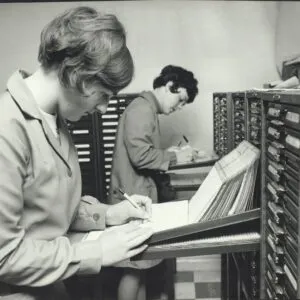We are proud to announce that the Cork LGBT Archive is now published in the Digital Repository of Ireland. The digital collection was the winner of our inaugural Community Archive Scheme, which offers membership of DRI to a low or no-income organisation. The judges recognised both the Archive’s social relevance and the level of work that had already gone into it. As a result of this win, a wealth of content relating to the Cork LGBT communities has been preserved for the long term, and is accessible to anyone who is interested in this rich history.
The LGBT Archive has been developed by Orla Egan, Cork activist and author of the book Queer Republic of Cork. It aims to preserve, digitise, share and display information in relation to the history of the LGBT communities in Cork. The city has a long and rich history of LGBT activism, community formation and development. Now, with the help of the DRI team, it will stand the test of time through digital preservation and sustainable access. Egan commented on the importance of inclusion in our repository:
‘Inclusion in the Digital Repository of Ireland is very important for small unfunded community archives, like the Cork LGBT Archive, who do not have the resources to develop our own complex digital preservation processes.’
Openness and visibility are core values behind the Digital Repository of Ireland, and Egan noted the significance of this for the Cork LGBT Archive, describing inclusion as ‘symbolic for previously marginalised communities, like the Cork LGBT community’. The new collection, Egan commented, ‘is bringing these communities in from the margins and into our national heritage repositories’.
We asked Orla Egan to choose just a handful of the most engaging objects in the collection:

‘Many of the firsts in Irish LGBT history happened in Cork. In 1981 the first National Gay Conference was held in Cork (followed by a conference in Dublin in 1982 and Belfast in 1983). The National Gay Conference collection contains a range of items from the 1981 conference, including the conference leaflet, brochure, conference report and a ticket from the Gala Ball that was held on the Saturday night of the conference.’
https://doi.org/10.7486/DRI.bk12nw66n

‘The first Irish LGBT float in a Patrick’s Day parade took place in Cork in 1992. The float was organised in response to the exclusion of ILGO (Irish Lesbian and Gay Organisation) from marching in Patrick’s Day parades in New York and Boston. It was also an opportunity for greater visibility for the LGBT community in Cork. The colourful float won the prize for Best New Entry in the Cork Patrick’s Day Parade.’
https://doi.org/10.7486/DRI.pn89ss543

‘The first Irish Lesbian and Gay Film Festival was organised in Cork in 1991. It was part of the long running Cork Film Festival and provided audiences with an opportunity to see a range of LGBT films. It became a regular part of the Cork Film Festival over the following years.’
https://doi.org/10.7486/DRI.qb991142g
Visit the DRI repository to access the Cork LGBT Archive collection, which can be downloaded and used under a CC-BY-NC-ND licence.
The second round of the DRI Community Archives Scheme is currently open, and closes on 25th October 2019, so apply now!
Update, 21 October 2019: We have been thrilled to see the positive reception that this news has had and would like to share some of the coverage. You can now read about the Cork LGBT collection in GCN, in Silicon Republic, Irish Examiner, LGBT Life, and EchoLive.ie.






